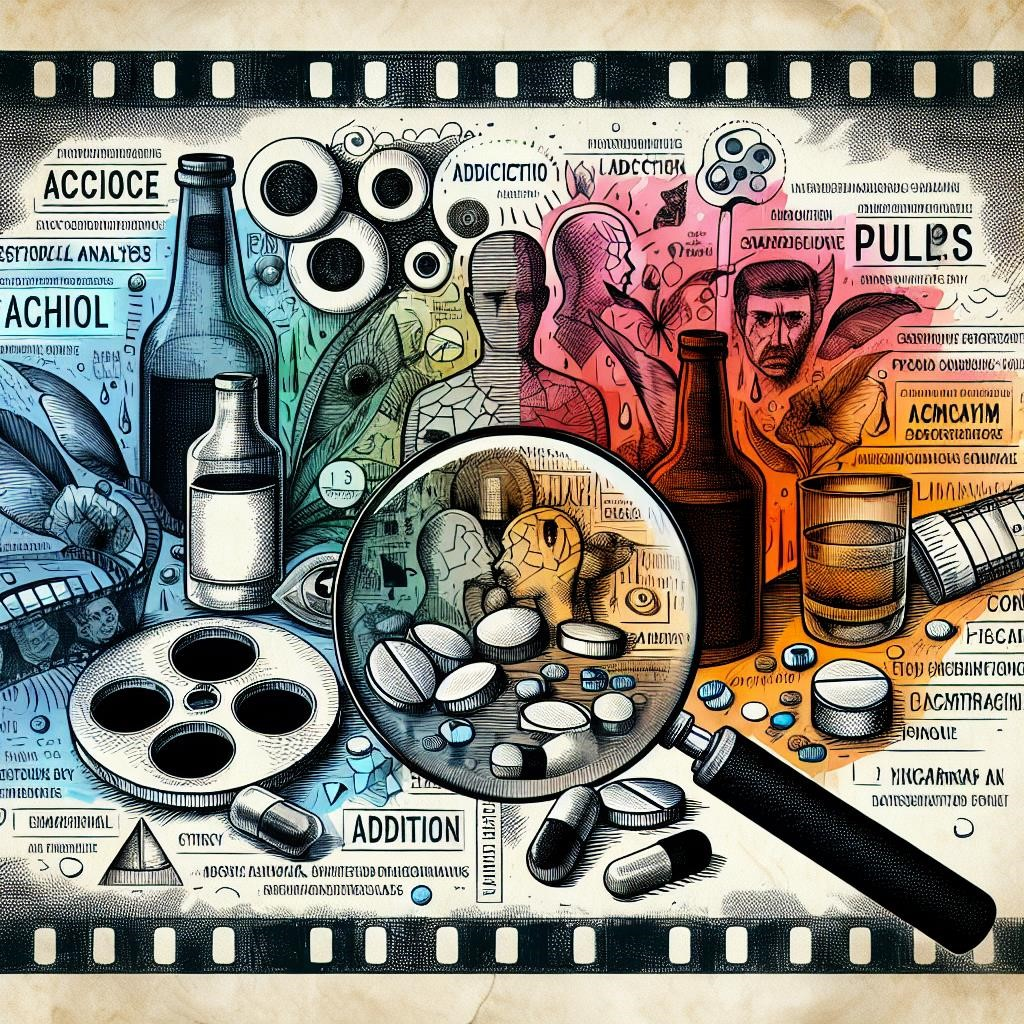Requiem for a Dream, directed by Darren Aronofsky, is a powerful exploration of addiction and its devastating effects on the human psyche. Released in 2000, this film has garnered critical acclaim and remains a poignant example of psychological drama in cinema. In this review, we will delve into the film’s themes, its emotional impact, and how it fits within the broader category of addiction-themed films.
Plot Summary
The film follows four characters: Harry Goldfarb (Jared Leto), his girlfriend Marion Silver (Jennifer Connelly), his mother Sara Goldfarb (Ellen Burstyn), and his best friend Tyrone (Marlon Wayans). Each character grapples with their own form of addiction, whether it’s drugs, the pursuit of dreams, or the need for validation.
Character Arcs and Performances
- Sara Goldfarb: Ellen Burstyn delivers a haunting performance as a mother whose obsession with losing weight leads her to amphetamines, spiraling her into a nightmarish reality.
- Harry and Marion: The toxic relationship between Harry and Marion highlights the destructive nature of addiction, as they both become increasingly consumed by their drug use.
- Tyrone: Marlon Wayans provides a compelling portrayal of a friend caught in the cycle of addiction, emphasizing the themes of desperation and hopelessness.
Cinematic Techniques and Style
Aronofsky employs unique visual styles and editing techniques to immerse the audience in the characters’ experiences. The use of rapid cuts, split screens, and a pulsating score by Clint Mansell creates a sense of urgency and disorientation, mirroring the characters’ psychological decline.
Thematic Depth
At its core, Requiem for a Dream is not just a story about addiction; it is a commentary on the pursuit of happiness and the lengths to which individuals will go to achieve their dreams. The film illustrates how societal pressures and personal desires can lead to self-destruction.
Best Psychological Drama Movies
In addition to Requiem for a Dream, there are several other films that tackle similar themes of psychology and addiction:
- Fight Club (1999): A dark exploration of identity and consumerism, this film delves into the psyche of its protagonist as he grapples with his inner demons.
- Trainspotting (1996): This film depicts the lives of heroin addicts in Edinburgh, showcasing the highs and lows of addiction in a raw and unflinching manner.
- The Basketball Diaries (1995): Based on Jim Carroll’s memoir, this film chronicles the descent into addiction of a young athlete, highlighting the struggles of youth and temptation.
- Black Swan (2010): Another Aronofsky masterpiece, this film examines the psychological toll of perfectionism and ambition in the world of ballet.
Requiem for a Dream stands as one of the most impactful addiction-themed films in cinema history. Its unflinching portrayal of the effects of addiction, coupled with outstanding performances and innovative filmmaking, makes it a must-watch for anyone interested in psychological dramas. As we continue to explore the complexities of human behavior and the dark side of dreams, this film serves as a poignant reminder of the fragility of the human spirit.
In a world where the pursuit of happiness can often lead to despair, Requiem for a Dream remains a haunting yet essential film that resonates with audiences, making it a timeless classic in the genre of psychological drama.
